-
Protect Te Tiriti in EducationAotearoa should be a place where everyone, regardless of their background, is respected and part of a vibrant connected community. Where everyone feels a sense of belonging and knows their children will feel the same. Te Tiriti o Waitangi is the blueprint to making this future a reality, it guides us to live peacefully and respectfully together so that everyone can thrive. It is vital that our children learn the importance of honouring Te Tiriti o Waitangi and continue fostering respectful and reciprocal relationships between tāngata whenua and tāngata Tiriti (people of Te Tiriti). Education is where Te Tiriti o Waitangi is made real for every generation. Section 127 of the Education and Training Act ensures that schools, early learning services and tertiary institutions give effect to Te Tiriti — shaping how our children learn about identity, belonging, and partnership. Removing this section is not a technical change — it is a step backwards. It erases the Crown’s responsibility to honour Te Tiriti in the one place every child in Aotearoa passes through: our education system. Te Tiriti is not an add-on; it is the foundation of how we work together as iwi and Crown for the wellbeing of all tamariki. We call on the Government to retain Section 127 and reaffirm its commitment to Te Tiriti o Waitangi in education.24,086 of 25,000 SignaturesCreated by National Iwi Chairs Forum
-
Put Children First - Improve ECE Safety, Quality, and AccountabilityEvery family deserves to know their child is safe, nurtured, and receiving high-quality education the moment they walk through the doors of any licensed early childhood service. Yet, the Government is swinging a wrecking ball through early childhood education — slashing essential regulatory requirements and rushing through a wave of potentially harmful changes under urgency. These reforms put profit motives and the interests of service providers ahead of children and weaken the safeguards that give parents and caregivers trust and peace of mind. Let’s remind the Prime Minister, ministers of finance and education, the House of Representatives and the world that we don’t cut corners on our kids no matter what. Not here in Aotearoa. Not ever… 👉 See our full article on why this petition is necessary 👉 Follow our Facebook page for updates Sign the petition and tell the Government: • Put children first ❤️ • Stop harmful ECE reforms • Strengthen safety, quality, and accountability now!1,885 of 2,000 SignaturesCreated by ECE Parents' Council Aotearoa

-
Save NCEA - Strengthen, Don’t Replace it!There has been little genuine consultation with schools, whānau, or iwi about what is a major change to what and how we assess. Any changes of this scale needs to be informed by the diverse communities that our education system serves. NCEA is not perfect - but it has proven strengths, flexibility, and the ability to serve all learners across diverse pathways, whether academic, vocational, or community-based. Instead of scrapping it, we call on the Government to work alongside educators, students, whānau, and industry to strengthen NCEA through curriculum alignment, a standards review, and genuine co-design. Replacing NCEA risks: • Disadvantaging Māori, Pasifika, neurodivergent learners, migrants, second language learners, and those from lower socio-economic backgrounds. This has been cited in cabinet papers about the proposal as a likely outcome if NCEA is replaced. • Narrowing subject choice, creative course design and limiting pathways for students, whether they are university-bound or not, the proposed changes fail to recognise the benefit of a wide range of subjects and assessment opportunities designed to meet the needs and interests of a wide range of learners. • Reverting to an increased focus on external assessment and exams will have an impact on flexible course design and may negatively impact student wellbeing. We must retain flexibility about how we assess our young people. • A shift to letter grades and percentages which is a regression to outdated, hierarchical models that will likely lead to scaling, bell curves and league tables. • More young people will leave school without a meaningful formal qualification. Retaining Level One NCEA as an optional certificate ensures we can meet the needs of more learners. We believe New Zealand needs an inclusive, future-focused qualification system that values all learners because that is how we build a connected, productive, and ambitious society. That system is NCEA – and it can be strengthened. Replacing it puts all those things at risk. Together, let’s protect NCEA and ensure our qualification system continues to serve every learner in Aotearoa. Please sign this petition so we can make sure NCEA remains and that we focus on strengthening rather than scrapping our national assessment framework. 📢 We also encourage you to have your say by completing the official consultation survey before 15 September 2025: https://www.education.govt.nz/consultation-ncea About Aotearoa Educators Collective Aotearoa Educators Collective is an umbrella collective created to support education thought leaders who share a common interest in promoting progressive ideals in education. The group includes academics, principals and teachers and is not aligned to any political party. https://www.aec.org.nz/7,369 of 8,000 SignaturesCreated by Aotearoa Educators Collective

-
Fair Pay and Better Conditions for Aotearoa's Teachers: An Investment in Our FutureTo value our teachers, we must first understand the immense scope of their role. Every day, they are so much more than just educators. They are: • Mentors and Role Models, guiding students through critical stages of their personal and academic development. • Counsellors and Mental Health First Responders, providing a safe space and crucial support for students facing anxiety, stress, and hardship. • Innovators, constantly adapting their teaching methods to cater to diverse learning needs, including those of students with disabilities and learning challenges. • Mediators, skillfully resolving conflicts and teaching students vital social and emotional skills. • Community Liaisons, bridging the gap between school and home, and working closely with whānau to support student success. • Administrators, managing extensive record-keeping, assessment, and reporting requirements, often outside of teaching hours. This immense emotional and administrative labour is performed on top of their core responsibility: to plan and deliver a world-class education. Why Teachers are Essential for Future Generations: Well-supported, fairly compensated, and respected teachers are the foundation of a thriving society. They are directly responsible for cultivating the skills and values our country will need to succeed in the 21st century. • They build a skilled workforce, preparing students for the jobs of tomorrow and driving our economic growth. • They foster critical thinkers and engaged citizens, which are essential for a healthy and robust democracy. • They nurture resilient and empathetic individuals, creating stronger, safer, and more connected communities. When we support our teachers, we are supporting our children and paving the way for a better future for Aotearoa. Please sign and share this petition, together, we can make a difference and ensure better working conditions for our teachers and school staff.61 of 100 SignaturesCreated by Valerie McKernan
-
Hands Off NorthTec - Our People, Our Place, Our Future!Education is essential to our community’s future. Everyone who wants to increase knowledge and skills should have the opportunity to learn. NorthTec isn't just a campus, this is the heart of our region, upskilling in tertiary and vocational education in Te Tai Tokerau. NorthTec is Under Threat - Te Tai Tokerau Needs Your Voice! NorthTec was built to serve our people, but now our future is on the line. If proposed cuts go ahead, we risk losing: • Teachers/Kaiako - the heart of our classrooms • Librarians - keeping knowledge alive • The Student Café - a hub for connection • Student Voice - silencing the voices of ākonga • Student Support Services - academic and pastoral • Disability + Health Services • Administration and support services (ICT, Marketing, Enrollments, Registrar, Business) • Academic Programmes - admin coordination are the heart of front line delivery • Regional Campuses must stay open with support services • International Students These proposed cuts will isolate learners, strip away support and threaten the mana of vocational education in Te Tai Tokerau. Sign now, share this amongst whanau and friends and stand with us here at NorthTec/Te Pūkenga. Your signature adds strength to our movement, join us.460 of 500 SignaturesCreated by Student Voice
-
Stop the repeal of the Plain Language Act 2022Aotearoa should be a place where people are encouraged and supported by their government to engage in democratic processes. Where usage of plain language in documents is encouraged, and people have the ability to understand their rights within seconds no matter where they come from or what their background is. Right now our government has chosen to treat accessible language differently to other equitable measures by excluding Plain Language from their budget. Although plain language is a less tangible concept, the importance of it to people across Aotearoa is no less vital than having wheelchair ramps in public buildings, or sign language interpreters during emergency broadcasts. Simple, easy to read language helps our more vulnerable groups in Aotearoa to receive fair treatment in all sectors of government. Over 1.3 million adult New Zealanders have low literacy/numeracy skills, with Māori and Pacific peoples significantly overrepresented in this group. This leads to higher barriers in employment, health, income, and civic engagement for these communities[1]. Furthermore, up to 10% of New Zealanders have communication issues, including difficulties that directly affect reading, writing, or understanding official information. There are also more than 11,530 children with swallowing difficulties, 95,000 people with autism, and 60,000 children with auditory processing disorder, all conditions that can impact effective engagement with complex or non-plain language content[2]. Plain language is also a vital tool for older generations, many of whom are navigating digital systems and filling out important forms independently, often without someone to assist them. Keeping Plain Language requirements in legislation means everyone is considered when the government publishes information. By taking it away, the government is forgetting why it was put into place: to keep all of us in the loop. No one should have to spend hours filling out and decoding benefit forms, immigration forms, justice information, or health information. The budget we pay for should work for us, too. Now is the time for us to take action that will protect our most marginalised brothers and sisters. Action that allows for everyone to be part of the conversation, and puts equitable care at the heart of our government's services. References: 1. An Empirical Portrait of New Zealand Adults Living With Low Literacy and Numeracy Skills. AUT NZ Pathways Research Institute. 2022: https://nzpri.aut.ac.nz/__data/assets/pdf_file/0008/522827/An-empirical-portrait-of-New-Zealand-adults-living-with-low-literacy-and-numeracy-skills_report.pdf 2. Communication and Swallowing Disabilities in New Zealand: Data Fact Sheet 2023. Speech-language Therapists New Zealand. 2023: https://speechtherapy.org.nz/assets/Uploads/SLT-Business-Case-2024/Communication-and-Swallowing-Disabilities-in-New-Zealand-Data-Fact-Sheet.pdf?vid=41,913 of 2,000 SignaturesCreated by Connie Bachle
-
Keep Tokoroa Toi Ohomai OPENNo matter where we live in Aotearoa our communities need access to essential services, education and opportunities to grow and thrive. That includes Tokoroa and other small regional communities throughout the South Waikato. But as a result of this Government’s decisions Tokoroa’s Toi Ohomai campus is facing closure. The Toi Ohomai Institute of Technology has published a proposal to cut over 160 jobs which would lead to the purpose built campus in Tokoroa being closed. Toi Ohomai has said the proposal was in response to a Government expectation to become “financially viable”. Tokoroa has already faced the devastating blow of Kinleith Mill shutting down one of its plants with 150 people losing their jobs. Families have had to reevaluate their lives in the South Waikato, with many deciding to move out of the district for more job opportunities. Some have decided to stay, looking into retraining at Toi Ohomai or seeking employment in other areas in the district. The Toi Ohomai campus in Tokoroa is a beacon of light for those who otherwise wouldn't have the means to travel to continue tertiary education in Rotorua, Tauranga or Hamilton. The campus and its courses are an asset to all ages, from young high school graduates to adult learners looking to upskill or retrain. With new housing developments and the Maraetai Road Business Park build, there is a light at the end of the economic recovery tunnel for Tokoroa and the wider South Waikato. If Toi Ohomai remains open in Tokoroa, it has the potential to become a significant economic catalyst for local businesses and the recruitment and retention of young people in the district. If we lose Toi Ohomai in Tokoroa, opportunities for locals will once again become extremely limited and the wider community will be left with the burden to fill the gaps. To creatively and collaboratively invest in our local community and allow time for possibilities to flourish is to contribute to the growth and vibrancy of the South Waikato and provide hope to future generations. "Patience is bitter, but its fruit is sweet". Sign this petition to signal to Toi Ohomai and the government that the Tokoroa community deserves better and will not stand by as our opportunities for youth and future generations are shortsightedly taken away. Let’s show Toi Ohomai leadership that the Tokoroa campus is a valued asset in the community and it must stay open.246 of 300 SignaturesCreated by Elvisa Van Der Leden
-
Protect Our Youth – Ban Vape Shops in the Far North DistrictNgā Take 10 Hei Hainatia i Tēnei Petihana TOP 10 REASONS TO SIGN THIS PETITION 1. Kua piki haere te haurehu a ngā rangatahi—me tū ngātahi tātou te aukati i tēnei mate urutā. Youth Vaping Epidemic - vaping is spreading fast among rangatahi (young people), and it's becoming a serious health issue. Daily vaping among New Zealand teens has nearly doubled in one year, with 25.2% of 18–24 year-olds now vaping daily. Among Māori youth, this rate is even higher at 21.7% [6]. 2. He mōrearea tūturu ki te hauora. The health risks are real — vaping isn’t as safe as purported. Vaping is linked to respiratory conditions, nicotine addiction, and impaired adolescent brain development. Emerging evidence also suggests a potential connection to chronic obstructive pulmonary disease (COPD) and cardiovascular risks (New Zealand Doctor, 2005). [7] 3. Ko ngā kamupene haurehu e pūpuri ana a tātou mokopuna i te mate. Vape advertising is targeting our kids [7] — and our kids are becoming addicted. It looks nice. It tastes nice. It's addictive. It makes you feel good. Flavoured vapes, bright packaging, and social media marketing are deliberately designed to attract young users. Some schools in Northland have reported finding children as young as 11 using vapes [8]. 4. Ka nui te utu ka utaina ki te ohanga ā tōna wā roa. Vaping might look cheap now, but the long-term costs to our health system and communities are massive. Treating vaping-related health conditions will place a growing strain on our healthcare system and taxpayers. Meanwhile, profits flow largely to multinational tobacco corporations. 5. He pānga kino tō te haurehu ki te taiao. Disposable vapes are polluting our whenua, waterways, and oceans — and they’re piling up fast [9]. 6. E whakakāhore ana ētahi atu kawanatanga o te ao hei ārai ēnei taputapu haurehu, me pēnei hoki tātou o Aotearoa . Around the world, governments are stepping up to protect young people from vaping. The Cook Islands has demonstrated bold leadership by banning the sale of vapes and raising the smoking age to 21 [10]. We can take bold measures, too. 7. Ka puta mai ngā toa hoko haurehu ki kō, ki kō, ki ngā wāhi pātata ki ngā kura, ki ngā hapori, ki ngā kainga maha. Hanga tōmuri kē ngā ture o te rohe. Vape shops are popping up everywhere — and the rules aren’t keeping up. As of mid-2023, there were over 1,200 specialist vape retailers registered in New Zealand [11]. Many operate through loopholes such as 'stores within stores,' making regulation difficult and we are now seeing global franchises such as “Shosha” stores penetrate our community. 8. Horekau he ture ā-rohe hei mimiti i ēnei āhuatanga raru ki te hāpori, ki a tātou mokopuna me ngā paru e panaia ki a Papatuānuku. Without local rules, vape shops are popping up everywhere — and our communities, our kids and the environment are at risk : The Far North District Council is currently the only Northland council without a smokefree/vapefree policy for public spaces. This leaves places like playgrounds and beaches unprotected. 9. Ka whakapau taima ngā kaiako te aru haere i ngā take haurehu i roto i ngā kura . Kāhore e pai te haurehu ki te hauora, ki te ako hoki. Vaping in schools isn’t just a health issue — it’s a disruption to education and the school environment. Teachers report vaping as a major disruption, taking time and resources away from learning. 10. Mā te reo kotahi o te hau kainga o Kaikohe o Kaitaia e tīni i ngā āhuatanga tūkino o ngā toa haurehu. Local voices can lead to real change. Let’s make sure our community is heard and protect our rangatahi from vaping. Local voice matters. Our communities should determine the types of businesses allowed to operate here, not corporate interests profiting from addiction. Me tupu pakari a tātou tamariki. Tuhia tō ingoa ki te petihana, āwhinatia mātou ki te tū mō tō rātou anamata. Our kids deserve to grow up safe and strong. Sign the petition and help us stand up for their future. References [1] https://www.phcc.org.nz/briefing/smoking-and-vaping-among-14-15-year-olds-government-action-urgently-needed [2]https://www.nzdoctor.co.nz/article/undoctored/vaping-causes-incurable-lung-disease-groundbreaking-study-shows [4] https://www.1news.co.nz/2024/04/10/unacceptably-high-sales-to-underage-vape-buyers-revealed/ [5] https://www.rch.org.au/kidsinfo/fact_sheets/E-cigarettes_and_teens/ [6] https://www.health.govt.nz/publications/smoking-status-of-daily-vapers-new-zealand-health-survey-201718-to-202122 [7] https://nzmj.org.nz/media/pages/journal/vol-137-no-1589/exposure-to-digital-vape-marketing-among-young-people-in-aotearoa-new-zealand/dc9761c255-1706653375/6317.pdf [8] https://www.nzherald.co.nz/northern-advocate/news/vaping-in-schools-being-stubbed-out-with-homegrown-northland-lessons/GWARQTN6UFAFRMIFTCFQQZDSBU/ [9] https://www.greenpeace.org.uk/news/are-disposable-vapes-bad-for-the-environment/ [10] https://www.rnz.co.nz/international/pacific-news/517488/cook-islands-bans-vapes-smoking-age-raised-to-21-if-you-don-t-smoke-you-still-die-opposition-mp-says [11] https://www.health.govt.nz/system/files/2024-08/RIS-visibility-of-vape-products-and-proximity-of-Specialist-Vape-Retailers-Redacted.pdf Further reading J, Erhabor., Z Yao., Erfan Tasdighi, Emelia J Benjamin, Aruni Bhatnagar, Michael J Blaha. 2005. E-cigarette Use and Incident Cardiometabolic Conditions in the All of Us Research Program, Nicotine & Tobacco Research, https://doi.org/10.1093/ntr/ntaf067336 of 400 SignaturesCreated by Te Wananga o Te Rangi Aniwaniwa
-
VUW: Divest from Fossil FuelsIn 2014, VUW promised to divest from fossil fuels. The Vice Chancellor of Te Herenga Waka announced VUWs “ethical investment stance” and pledged to divest $650,000 invested in fossil fuels. A decade later, evidence reveals that the Foundation still holds significant investments in fossil fuels through third-party investment managers. The 2014 commitment was clearly a false promise. The world that we wish to create is one of climate justice: where communities across the world live and thrive without the threat of flooding or drought, where our needs can be met through sustainable means, and where we can enjoy, without exploitation, the ecosystems that support human life. This future is created by investing in renewable energy and sustainable industries, not fossil fuels. The Foundation should give weight to earth scientists’ “final warning”that “humanity faces ‘devastating domino effects’ including mass displacement and financial ruin” as the planet warms. The UN states that the “world is on the edge of a climate abyss”, and ecologists have said that unless we change course, ecosystem collapse is ‘inevitable’. ExxonMobile, (one of the companies in VUW’s investment portfolio) has known about the devastating effects of fossil fuels since the 1950’s and admitted to systematically undermining the efforts of climate scientists. There are no excuses. Investment in fossil fuels in 2025 is unjustifiable and should be abandoned immediately. With this in mind, we make the following demands of Te Herenga Waka Victoria University and the Foundation board: 1. Disclose the amount of money the Foundation has invested in companies involved in fossil fuel production and distribution. The Foundation has already disclosed their fund managers, one of which oversees the fund “Schroder Sustainable Global Core PIE Fund (Hedged)”. This is of primary concern. According to Mindful Money this fund contains 6.45% fossil fuel companies, including climate criminals such as ExxonMobil and Shell. With the foundation trust overseeing over $100M, dirty investments could make up millions of their portfolio. The VUW foundation must be transparent as this is the starting point for accountability. 2. Divest all money away from companies involved in fossil fuels. The Foundation’s divestment from Israeli government bonds in 2024 demonstrates that making changes to their investment portfolio is possible. We urge the Foundation to take the same rapid action and divest from fossil fuels. 3. Implement a specific exclusion policy with zero tolerance for fossil fuel investments. The Statement of Investment Policy Objectives (SIPO) that governs Foundation investments has failed to prevent unethical investments and can no longer be relied upon. The Board of Trustees must implement a policy to ensure that the Foundation permanently divests from fossil fuels, both directly and indirectly. VUW must follow through with its original pledge and prevent any money being placed into fossil fuel companies again. Organisations signed on: • Te Aka Tauira—Victoria University of Wellington Students’ Association • Ngāi Tauira—Te Herenga Waka-VUW Māori Students’ Association • Climate Clinic Victoria University of Wellington • 350 Aotearoa • Climate Liberation Aotearoa • Oil Free Wellington • Peace Action Wellington • VUW Students for Wellbeing Economy853 of 1,000 SignaturesCreated by Climate Action & Resistance VUW
-
Student Sports For All StudentsWe believe every NZ student deserves fair and equal rights to compete in student sports events, including home-schooled students. School Sports NZ excludes home-schooled students from competing in many local, regional, and national events. Diverse and inclusive sport is a core principle within Sport NZ's strategy and we believe its funding allocations should uphold this. In our opinion, student sports should include every NZ student, no matter their legal education path. 📣 Please Sign and Share this Petition! Use social media, community groups, and newsletters to spread the word. Thank you! About Homeschooling Home-schooled students in Aotearoa New Zealand are domestic students regulated by Section 38 of the Education and Training Act 2020 and overseen by the Ministry of Education. Home-schooling families are eligible for a Homeschooling Allowance of between $398–$796 per student, per year from the Ministry of Education. About HESSA The Home Educators Student Sports Association (HESSA) is the national body representing the rights of almost 11,000 home-schooled domestic students to compete in sports across Aotearoa New Zealand. HESSA has a strategic focus on ending the exclusion of home-schooled domestic students from competing in secondary-age student sports in Aotearoa, New Zealand. Other Actions You May Like to Take 🏉 Ask Your Sports Club to Support the Cause Encourage clubs to publicly support inclusion and raise the issue with their governing bodies. 🏉 Contact National and Regional Sports Code Bodies Ask them to advocate for policy changes that allow home-schooled domestic students to compete in student sports at all levels. 📨Write to Your Local MP Personalize your message to explain why inclusion in student sports for home-schooled students matters to you. Ask them to raise the issue in Parliament or with the Minister of Sport and Sport NZ. 📨 Write to the Hon Mark Mitchell, Minister of Sport and Recreation Let him know that you support inclusive student sport and ask him to ensure Sport NZ funding reflects this value. 📨 Contact School Sport NZ and Sport NZ Send respectful emails or letters urging them to review their policies and align with inclusive principles. 📨 Engage with Local Councils and Boards of Trustees Encourage them to support inclusive policies in their local sports events and facilities. References • HESSA Feedback to SSNZ on Eligibility Criteria Review https://www.hessa.org.nz/newsarticle/152183?newsfeedId=2145584 Media • Radio New Zealand Article & RNZ Checkpoint Interview (24/4/2025) https://www.rnz.co.nz/news/national/559030/student-not-given-medal-due-to-being-homeschooled • NZME –NZ Herald & Bay of Plenty Times Article (3/5/2025) https://www.nzherald.co.nz/nz/tauranga-homeschool-student-stripped-of-biking-competition-medal/AVLBZXW5WNHZ5DFA2VHTZ4RGAU/#google_vignette • The Post (18/6/2025) https://www.thepost.co.nz/nz-news/360717151/treating-us-second-class-citizens-young-athletes-take-fight-parliament • Sport NZ – Good Practice Principles https://sportnz.org.nz/media/2012/good-practice-principles-for-the-provision-of-sport-and-recreation-for-young-people.pdf3,465 of 4,000 SignaturesCreated by HESSA Admin HESSA

-
Clean Air in SchoolsCovid can have substantial impacts on peoples’ health. Although Covid initially enters the body through the respiratory system, it can affect virtually every bodily system and organ. There are no advantages to catching Covid. Every infection increases the chance of serious damage to the body.[1] Studies show that at least 10% of all Covid infections result in Long Covid, including in children.[2] Long Covid symptoms include fatigue, brain fog, dizziness and headaches, sleep disruption, and anxiety which impact children's school performance and attendance.[3] In particular, too many children and educators are still getting Covid. We shouldn’t be so careless with our taonga. Teachers are most at risk of catching Covid.[4] Too many have had to leave the profession due to Long Covid. Schools are the best place to start deploying better tools to manage airborne diseases, which also include measles and whooping cough. When children acquire infections, they carry them home to their families and into our communities. Māori, Pasifika and disabled people have been especially hard hit by Covid,[5] and we know government response that devolves power to those communities works best. Under Te Tiriti o Waitangi, Government has a responsibility to uphold working with Māori in partnership and that is not happening with the Covid response anymore. We know a number of effective strategies to reduce Covid’s spread and it is not acceptable to continue our hands-off approach to Covid. Schools that have taken action regarding clean air have found reduced transmission, healthier school communities, and better student achievement.[6] The three main areas where we can make the biggest impact collectively are: clean air, vaccination, and supporting the health needs of school and ECE communities. A healthy clean air classroom should have five air changes per hour with the exhaled air in the room being replaced with fresh air.[7] Having access to CO2 monitors and portable air cleaners plays a critical role in achieving this. We can use CO2 monitors to check the indoor air quality and respond by opening windows and doors and/or deploying HEPA air filters and HVAC systems. Vaccines have played an important part in combating Covid worldwide. At the moment, the New Zealand government allows only very limited access to regular Covid boosters even though it has been shown that updated vaccines decrease the risk of infection and long-term effects like Long Covid.[8] Isolation and rest protect afflicted individuals and break chains of transmission. People need access to tests as well as adequate sick leave for themselves and to care for family members. With these sorts of measures, we can decrease absences, keep educators and children healthy, and even improve academic achievement. For more information about the importance of clean air in schools, visit the ACA website. Sources: 1. https://www.phcc.org.nz/briefing/long-covid-update-threat-continues-demand-strong-response 2. https://www.nature.com/articles/s41579-022-00846-2 3. https://publications.aap.org/pediatrics/article/153/3/e2023062570/196606/Postacute-Sequelae-of-SARS-CoV-2-in-Children 4. https://pmc.ncbi.nlm.nih.gov/articles/PMC7615205/ 5. https://www.wgtn.ac.nz/news/2023/01/covid-19-impacts-worse-for-maori-pasifika-and-disabled-people-study-finds 6. https://www.nber.org/system/files/working_papers/w30061/w30061.pdf 7. https://www.cdc.gov/niosh/ventilation/prevention/aim-for-5.html 8. https://www.health.govt.nz/system/files/2024-09/prop-028-report.pdf Organisations and individuals supporting this campaign: https://raisely-images.imgix.net/aotearoa-covid-action/uploads/signatories-jpg-d177d4.jpg Aotearoa Covid Action ActionStation NZEI Te Riu Roa PPTA ANZMES Long Covid Kids Long Covid Support Aotearoa Awhi Ngā Mātua Complex Chronic Illness Support Disabled Persons Assembly NZ ME Support 350 Aotearoa End ASH Now The Air Quality Collective Professor Michael Baker - Director, Public Health Communication Centre Dr Amanda Kvalsvig MBChB, MRCPCH, MSc (Epidemiology), PhD (Epidemiology) John D Potter MBBS PhD, Professor, Center for Public Health Research, Massey University, Wellington Dr Matire Harwood PhD, FRNZCGP, Toi Whanau Health Ltd. Dr Gary Payinda Dr Ed Hyde Dr David Galler Dr Stuart Ekdahl MBChB FRNZCUC Dr Siouxsie Wiles MNZM PhD (Microbiology) Dr Anna Stevenson MBChB, FNZCPHM2,479 of 3,000 Signatures
-
Reinstate Creatives in Schools ProgrammeCreatives in Schools (CiS) was an arts programme that ran from 2019 to 2024. It funded schools and kura to partner with professional artists and creative practitioners to share specialist artistic knowledge and creative practice with ākonga and students. The programme enabled tamariki and rangatahi throughout Aotearoa to participate in high-quality, arts-rich experiences in their schools, in collaboration with professional artists. The program not only empowered students but also offered professional development for teachers and essential employment opportunities for hundreds of artists throughout New Zealand. It was truly a win-win for all involved. Young people need access to the arts more than ever in this fast changing world. CiS was a fantastic programme that worked on many levels. We call on the current government to reinstate the Creative in Schools Programme. "Playfulness and imagination aren't just essential for children's development, but for our world. Empathy is a basic, and that's why the imagination is so important. To be able to imagine someone other than yourself and what their life is, is so vitally important in our times now." – Professor Peter O’Connor.[2] References: [1] https://www.educationcounts.govt.nz/publications/schooling/creatives-in-schools-programme/creatives-in-schools-programme-evaluation-round-1 [2] https://www.rnz.co.nz/programmes/the-detail/story/2018948356/imagining-a-better-school-system-for-new-zealand Further reading: https://www.nzherald.co.nz/nz/education/kiwi-filmmaker-dame-gaylene-preston-says-government-daft-to-cut-creatives-in-schools-programme/XGZVLDOFVZAJDLUHOXTLJGWD6Y/#:~:text=The%20Creatives%20in%20Schools%20programme,to%20better%20support%20current%20priorities%E2%80%9D. https://thebigidea.nz/stories/a-national-disservice-the-need-to-reinstate-creatives-in-schools https://www.thepost.co.nz/nz-news/350316203/parties-jostle-over-axeing-creatives-schools https://www.thepost.co.nz/nz-news/350320475/creatives-schools-was-more-nice-have https://www.thepost.co.nz/culture/350391419/arts-and-music-are-essential-not-nice-haves?cx_testId=3&cx_testVariant=cx_1&cx_artPos=2&utm_source=localised_module#cxrecs_s https://www.rnz.co.nz/programmes/the-detail/story/2018948356/imagining-a-better-school-system-for-new-zealand3,401 of 4,000 SignaturesCreated by Dr Kerryn Palmer & Sarah Yates

.jpg)

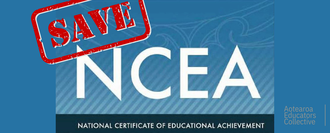
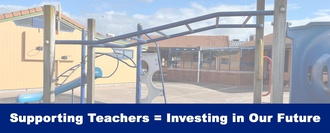
.PNG)
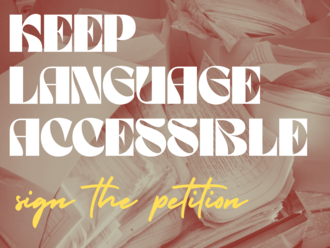
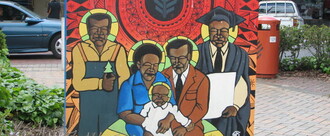
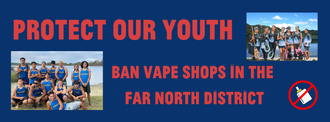.png)
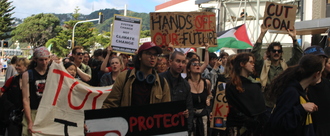
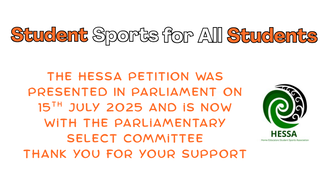%20(1024%20x%20576%20px)%20(2).png)
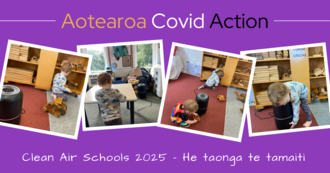.png)
